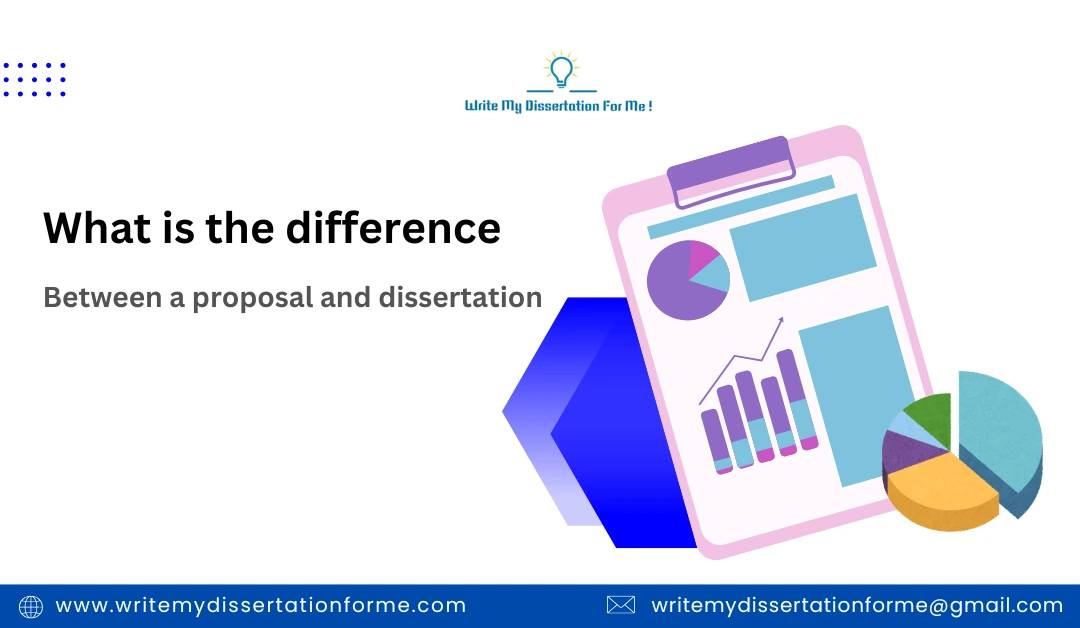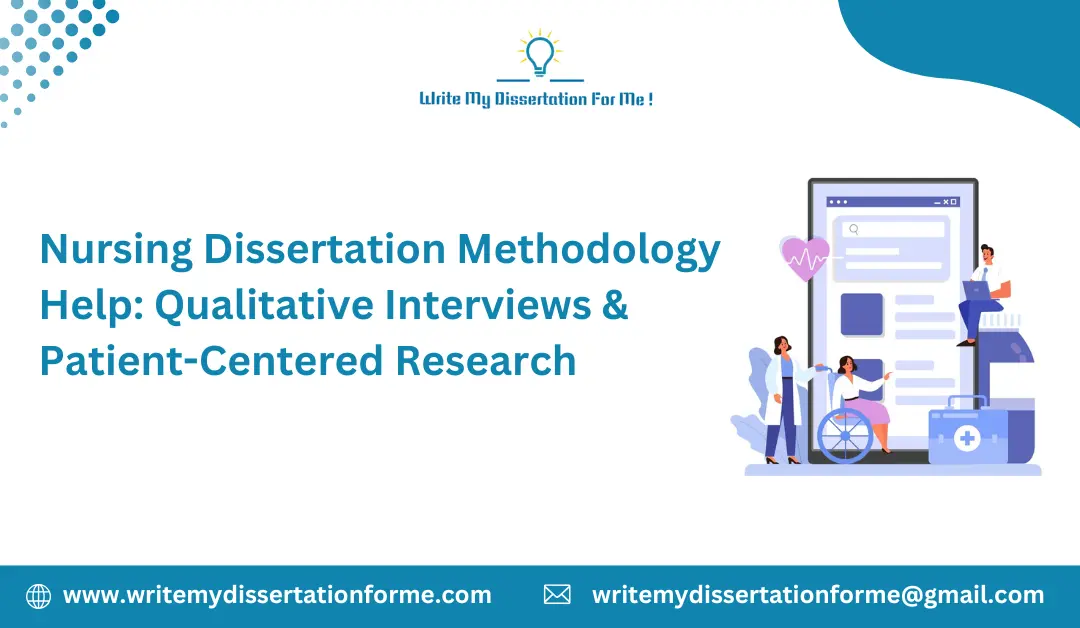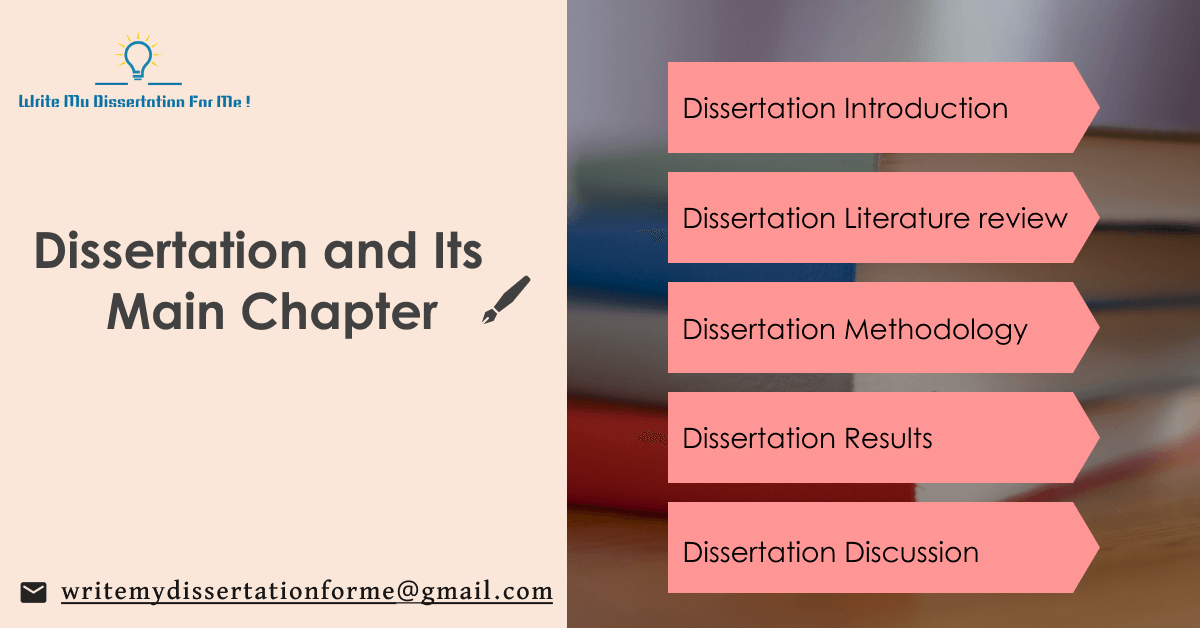What Is The Difference Between A Proposal And A Dissertation?
February 04 2025 | 07 min read

Starting graduate-level research can be intimidating as well as thrilling. Knowing the differences between a proposal and a dissertation is one of the most important aspects of this academic process. Despite their connections throughout the research process, these two publications have separate functions, differ in structure, and offer something special to your academic development. We shall examine these distinctions in depth in this blog, providing information on their unique functions and the reasons they are essential to the field of scholarly research.
Understanding the Research Proposal
A research proposal is the blueprint of your intended study. It is a document that outlines your research question, objectives, methodology, and the significance of your study. Essentially, a proposal is designed to convince your academic committee or funding bodies that your research is both important and feasible.
Purpose of a Proposal:
A proposal's primary objective is to clearly state the research problem and provide evidence for its deservingness. It assists you in organizing the actions required to carry out your investigation and refining your research concepts. When submitting a proposal, you usually:
- Describe the research issue: Determine the gap in the body of literature that your research attempts to address.
- Examine the literature: To establish context and relevance, critically evaluate earlier research.
- Describe the approach: Describe the study's methodology, data gathering strategies, and analysis approaches.
- Emphasize the importance: Talk about your research's possible contributions to the field and its possible effects.
Because a well-written proposal is so important, many students may feel overburdened and turn to the internet for help with questions like Write My Dissertation Proposal For Me. Although expert assistance might offer direction, it's imperative that the proposal maintains your own thoughts and research strategy.
Key Components of a Proposal:
- Title and Abstract: The abstract provides a brief synopsis of your study, while the title should be succinct and representative of your research topic.
- Describes the background, the research challenge, and the significance of the study.
- A literature review lays out the theoretical foundation and examines important sources.
- Research Methodology: Describes the procedures used to gather and examine data.
- Schedule and Budget (if any): explains the timetable for the research and any funding needs.
- Conclusion: Reiterates the importance of the research and summarizes the key elements of the proposal.
Delving into the Dissertation:
The final, thorough product of your academic work, a dissertation is the result of years of investigation. It is a comprehensive report that details the study methodology and results, adding fresh information or perspectives to your field.
The objective of a dissertation:
The purpose of the dissertation is to give a thorough description of your research process. The dissertation is the finished work, as opposed to the proposal, which is a plan. It fulfills a number of important functions:
- Show off your mastery: Demonstrate your in-depth knowledge of your field of study.
- Participate in the field: Provide novel discoveries or perspectives that enhance scholarly understanding.
- Demonstrate your ability to conduct research: Emphasize your capacity for independent investigation, data analysis, and conclusion-making.
- Completing academic requirements is frequently the main prerequisite for obtaining a graduate degree.
The thought of finishing a dissertation might be intimidating for a lot of people. When confronted with the enormity of this work, searches such as "Can Someone Write My Dissertation For Me" may appear. It's crucial to keep in mind, nevertheless, that a dissertation needs to be entirely original in order to accurately represent your academic background and unique perspectives.
Key Components of a Dissertation:
- Abstract and Title Page: Provide a brief synopsis of the dissertation along with the title and author.
- Overview: Give background details, identify the research question, and describe the framework of the dissertation.
- A literature review is a thorough analysis of pertinent scholarly works that places your research in a larger context.
- Methodology: A thorough description of the study's design, data collection techniques, and analysis steps.
- Findings/Outcomes: Present the gathered data, frequently using charts and tables as visual aids.
- Discussion: Evaluate the findings, contrast them with previous research, and consider their ramifications.
- Conclusion: Provide a summary of the study's results, go over its limitations, and recommend directions for further investigation.
- Appendices & References: List all of the sources you used, along with any other information that helped with the study.
Comparing the Proposal and the Dissertation:
Although they are inextricably intertwined, the proposal and dissertation have distinct functions in your research process. You can better manage your time and expectations if you are aware of these distinctions.
Detail and Scope:
- Proposal: In essence, the plan is the proposal. It describes what you want to learn and how you want to learn it. Usually succinct, it emphasizes relevance and viability over in-depth study.
- Dissertation: The dissertation is a comprehensive report that describes every step of the study procedure. It entails gathering, evaluating, and interpreting facts and offers a thorough explanation of your conclusions.
The Research Process's Timing:
- Proposal: Usually composed at the start of your investigation, the proposal establishes the framework for the subsequent steps. Before you start the research, your academic committee usually reviews and approves it.
- Dissertation: Following the completion of the research, the dissertation is written. It is the finished output that summarizes all of your study findings and experiences.
Purpose and Audience:
- Proposal: Your academic supervisors, funding agencies, or research committees are the main recipients of your proposal. Securing support and permission for your proposal is the aim.
- Dissertation: Researchers, practitioners, and aspiring academics are among the wider academic audience for which the dissertation is meant. It is frequently published for reference purposes and contributes permanently to the field.
Originality and Contribution Level:
- Proposal: A proposal's main purpose is to show the potential for new study, even though uniqueness is crucial. The plan and reasoning are more important than the actual results.
- Dissertation: The dissertation's core value is originality. The study must demonstrate your capacity for autonomous and creative research while offering fresh perspectives, discoveries, or advancements in your field.
Navigating the Research Process:
It is essential to comprehend the distinctions between a proposal and a dissertation in order to manage your research project efficiently. The following techniques will assist you in navigating this process:
Get started early and make careful plans:
Effective time management is essential. Creating a precise schedule for every phase, from writing the proposal to finishing the dissertation, can help to avoid last-minute scrambling and guarantee that every document gets the time and attention it needs.
Seek Advice and Make Use of the Resources Available:
Never be afraid to seek advice from peers and academic advisors at any point during your research process. Professional resources are accessible in case you get stuck. For example, a trustworthy dissertation writing service can offer insightful criticism and editing support to help you polish your work without sacrificing its uniqueness.
Accept the Process of Learning:
The dissertation and the proposal are both educational resources. The dissertation pushes you to carry out your plan and provide new information to your field, whereas the proposal aids in the crystallization of your research ideas and methodology. Accept both phases as essential components of your learning process.
Professional Integrity and Ethical Issues:
When faced with the challenges of academic writing in the digital age, many students look for short cuts. Can Someone Write My Dissertation For Me and Write My Dissertation Proposal For Me are frequent inquiries. Although asking for assistance is appropriate, you should make sure that the work you turn in is truly your own. In addition to protecting your integrity, ethical research methods help you succeed academically and professionally in the long run.
The Function of Expert Support:
The choice of professional assistance can occasionally be alluring due to the strain of achieving academic deadlines and the difficulty of producing high-quality work. Understanding the limits of ethical aid is crucial, though.
When to Get Expert Assistance:
When used properly, professional services can be quite helpful. For example, a dissertation writing service can help with proofreading, editing, and organizing your work. They can guarantee that your papers adhere to academic standards and assist you in making your views more clear. These services shouldn't take the place of your own work, though; rather, they should support it.
Juggling Personal Effort with Assistance:
Keep in mind that your dissertation and proposal both represent your academic path. The main concepts, research, and analysis must be your own, even when outside assistance can add polish and clarity. Maintaining this equilibrium guarantees the authenticity of your work and the ongoing development of your critical research abilities.
Preventing Academic Misconduct:
The ethical ramifications of using words like Write My Dissertation Proposal For Me or Can Someone Write My Dissertation For Me should be taken into consideration. There are severe academic consequences, including harm to your reputation and perhaps disciplinary action, when you turn in work that is not your own. Professional help should never be used as a shortcut to get around the hard effort that goes into academic success, but rather as a tool for improvement.
Conclusion:
The process of writing a research proposal and finishing a dissertation is a life-changing event. Both documents are essential to your academic career, but they have different functions and call for varying degrees of originality, timeliness, and detail. A dissertation is the last, comprehensive report of your research results and contributions to your field, whereas a proposal is your first blueprint—a strategy that establishes the foundation for what you aim to examine.
You can handle your research assignment more skillfully and steer clear of typical errors by being aware of these distinctions. Every step must be approached with effort, clarity, and a dedication to moral research methods. You can improve your work without sacrificing your integrity by making use of resources like peers, academic advisors, and trustworthy professional services like a dissertation writing service.
Remember, while it may be tempting to search for shortcuts with queries like Write My Dissertation Proposal For Me or Can Someone Write My Dissertation For Me, the true value of your academic work lies in the process of discovery and the rigorous effort you put into producing original research. Embrace the challenge, invest in your growth, and let your work be a testament to your dedication, resilience, and intellectual curiosity.
In the end, the distinctions between a proposal and a dissertation are not just about format or structure—they represent different phases of your academic journey. By understanding and respecting these differences, you not only enhance your research skills but also build a strong foundation for future scholarly endeavors.
If you loved reading this, please share this,
also read

From Concept to Approval: Writing a Dissertation Proposal Made Easy
One of the most difficult phases of your academic career is usually writing a dissertation proposal. Convincing your committe...

Nursing Dissertation Methodology Help: Qualitative Interviews & Patient-Centered Research
Writing an engaging nursing dissertation necessitates a thorough grasp of research techniques in addition to clinical knowled...

Dissertation and Its Main Chapter
A dissertation is a long piece of written work that presents the research of a graduate student. It is typically required as ...